Understanding Sensitive Skin in Summer
Sensitive skin is characterized by its tendency to react strongly to environmental factors, certain ingredients, and temperature changes. It often appears red, feels tight, and may sting or burn when exposed to triggers. During summer, these symptoms can intensify due to increased UV exposure, higher temperatures, and humidity changes.
The summer heat causes your skin to lose water more rapidly, leading to dehydration that can compromise your skin barrier. When this protective barrier weakens, irritants penetrate more easily, causing inflammation. Additionally, sweat mixed with sunscreen can clog pores, while chlorine from pools and saltwater from the ocean further strip natural oils.
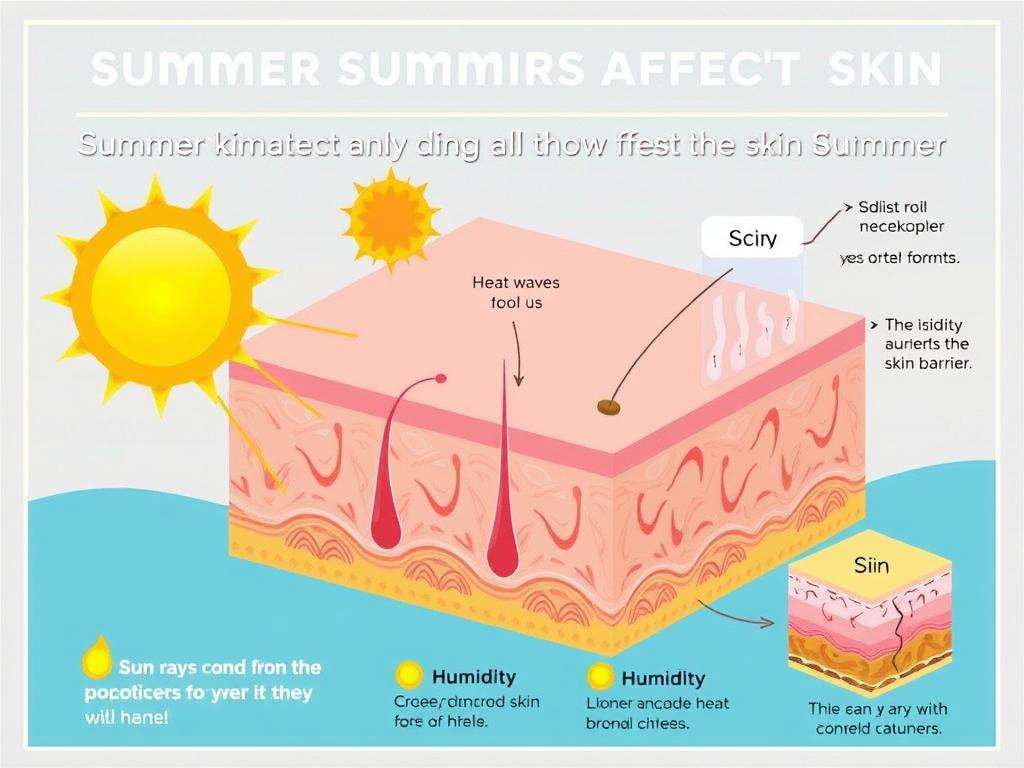
1. Choose pH-Balanced, Gentle Cleansers
Summer increases oil production and sweat, making proper cleansing essential. However, harsh cleansers can strip your skin’s natural moisture barrier, leading to more sensitivity. Opt for pH-balanced, sulfate-free cleansers specifically formulated for sensitive skin.
Look for ingredients like aloe vera, chamomile, and cucumber extract that soothe while cleansing. Avoid products containing alcohol, fragrances, and harsh surfactants that can trigger irritation. Cleanse twice daily – morning and night – but avoid over-washing, which can disrupt your skin’s natural balance.
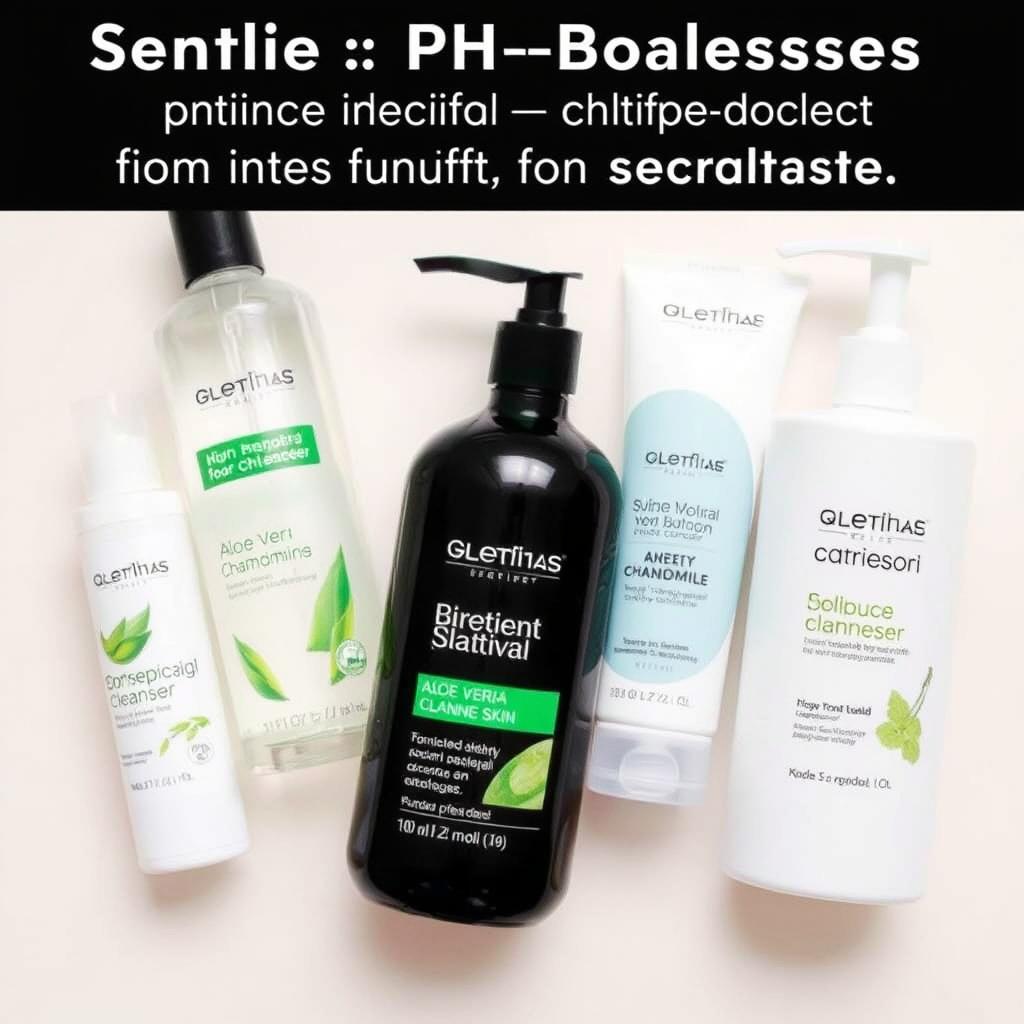
Recommended Gentle Cleansers
Try these dermatologist-approved cleansers specifically formulated for sensitive summer skin.
2. Prioritize Mineral-Based Sun Protection
Sun protection is non-negotiable for sensitive skin, especially during summer. Chemical sunscreens can cause irritation and stinging, particularly around the eyes. Instead, choose mineral (physical) sunscreens containing zinc oxide or titanium dioxide that sit on top of the skin and reflect UV rays away.
Apply SPF 30 or higher every morning, even on cloudy days, and reapply every two hours when outdoors. Look for formulations specifically labeled for sensitive or reactive skin types. Water-resistant formulas are essential for swimming or heavy sweating.
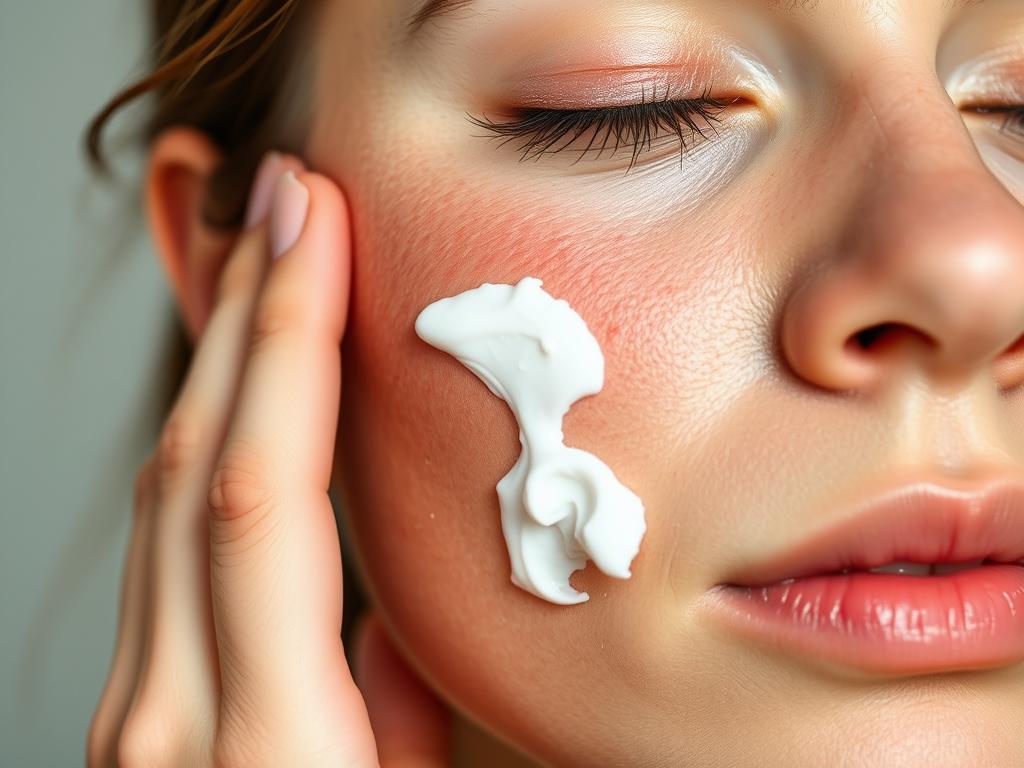
“For sensitive skin, mineral sunscreens are generally better tolerated than chemical ones. Look for zinc oxide and titanium dioxide on the ingredient list, and always patch test before applying to your entire face.”
3. Maintain Hydration Inside and Out
Summer heat increases water loss through the skin, making hydration crucial for sensitive skin types. Choose lightweight, non-comedogenic moisturizers containing hyaluronic acid, glycerin, or ceramides that hydrate without feeling heavy or greasy.
Apply moisturizer to slightly damp skin to lock in hydration. For internal hydration, drink plenty of water throughout the day and consume water-rich foods like cucumber, watermelon, and celery. Consider using a humidifier if you spend time in air-conditioned environments that can further dehydrate your skin.
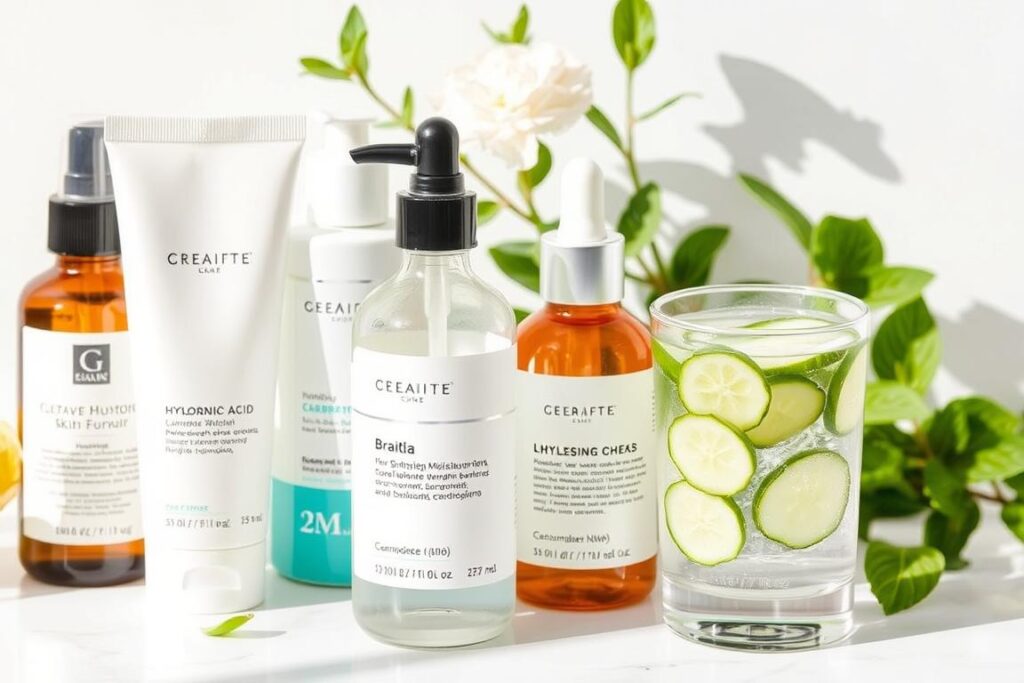
4. Avoid Peak Sun Hours
The sun’s rays are strongest between 10 a.m. and 4 p.m. For sensitive skin, this intense exposure can trigger inflammation, redness, and even rashes. Plan outdoor activities for early morning or late afternoon when UV radiation is less intense.
If you must be outside during peak hours, seek shade whenever possible and supplement your sunscreen with physical protection like wide-brimmed hats and UPF clothing. Remember that UV rays can reflect off surfaces like water, sand, and concrete, increasing your exposure even in shaded areas.

5. Wear Protective Clothing and Accessories
Physical barriers provide excellent protection for sensitive skin. Choose lightweight, breathable fabrics with UPF (Ultraviolet Protection Factor) ratings when possible. Long-sleeved shirts, wide-brimmed hats, and UV-blocking sunglasses shield vulnerable areas from direct sun exposure.
Opt for loose-fitting clothes that allow air circulation and reduce friction against sensitive skin. Natural fabrics like cotton and linen are generally better tolerated than synthetic materials, which can trap heat and cause irritation through sweating.

6. Choose Fragrance-Free Products
Fragrances are among the most common irritants for sensitive skin, and heat can amplify their irritating effects. During summer, switch to completely fragrance-free products across your entire routine – from cleansers and moisturizers to sunscreens and body washes.
Be aware that “unscented” doesn’t always mean fragrance-free; it may contain masking fragrances. Look specifically for “fragrance-free” on labels and check ingredient lists for perfume, parfum, essential oils, or botanical extracts that can trigger reactions in sensitive skin.
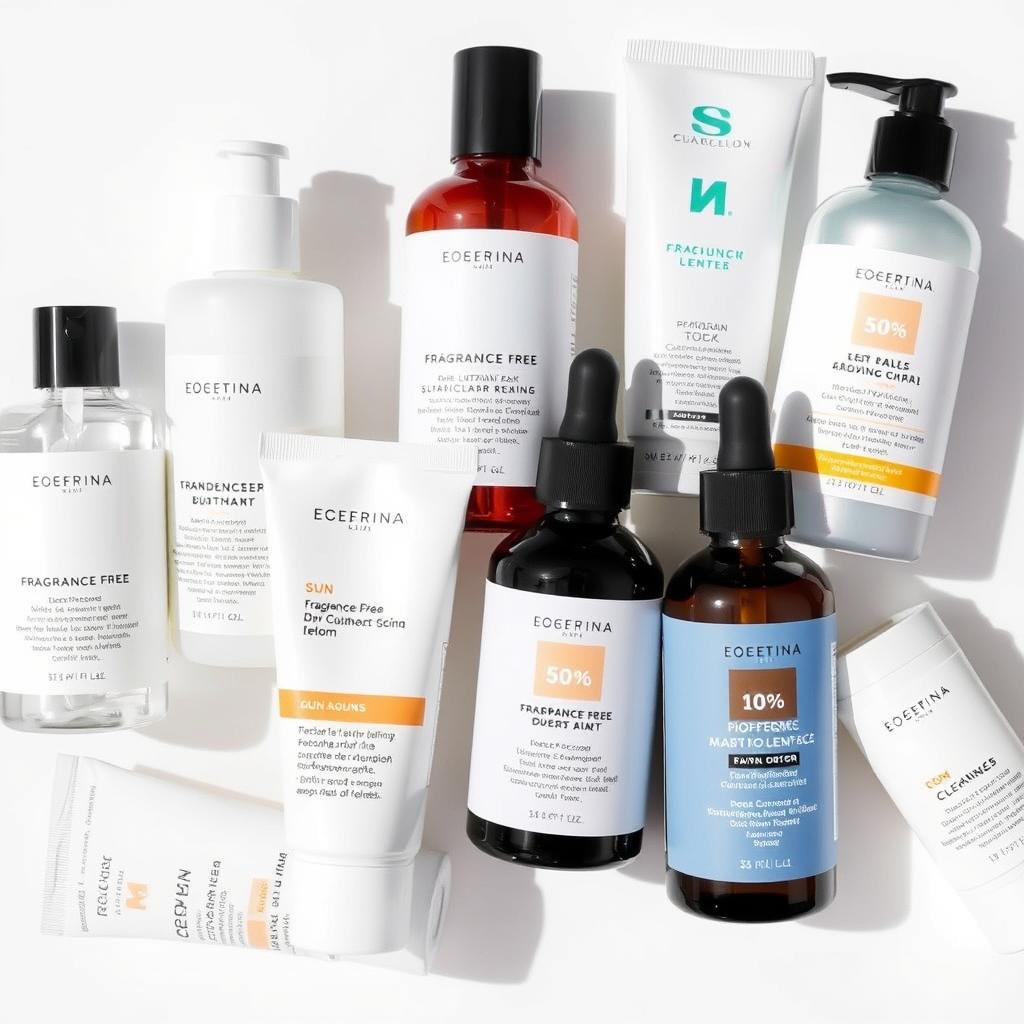
Fragrance-Free Summer Essentials
Discover our collection of fragrance-free products specially formulated for sensitive summer skin.
7. Incorporate Soothing Ingredients
Keep irritation at bay with products containing calming ingredients like aloe vera, cucumber extract, centella asiatica (tiger grass), colloidal oatmeal, and allantoin. These natural soothers reduce redness and inflammation while supporting your skin’s barrier function.
Consider keeping aloe vera gel in the refrigerator for an extra cooling effect when applied. Pure aloe vera can be especially helpful after sun exposure to calm heated skin. For persistent redness, products with niacinamide (vitamin B3) can strengthen capillaries and reduce sensitivity over time.
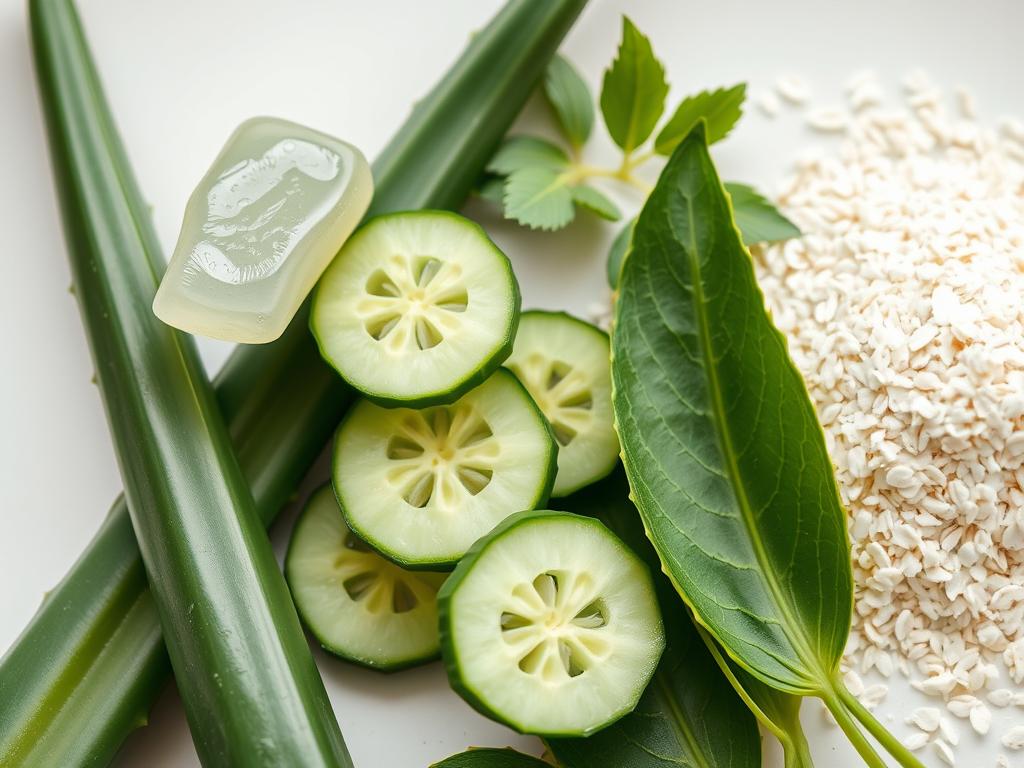
8. Exfoliate Minimally and Gently
While exfoliation helps remove dead skin cells, sensitive skin requires a gentler approach, especially in summer when it’s already stressed. Limit exfoliation to once weekly using mild chemical exfoliants like lactic acid or polyhydroxy acids (PHAs) rather than harsh physical scrubs.
Always exfoliate in the evening rather than morning, as freshly exfoliated skin is more vulnerable to sun damage. Follow immediately with soothing, hydrating products and extra sun protection the next day. Skip exfoliation entirely during periods of active irritation or sunburn.
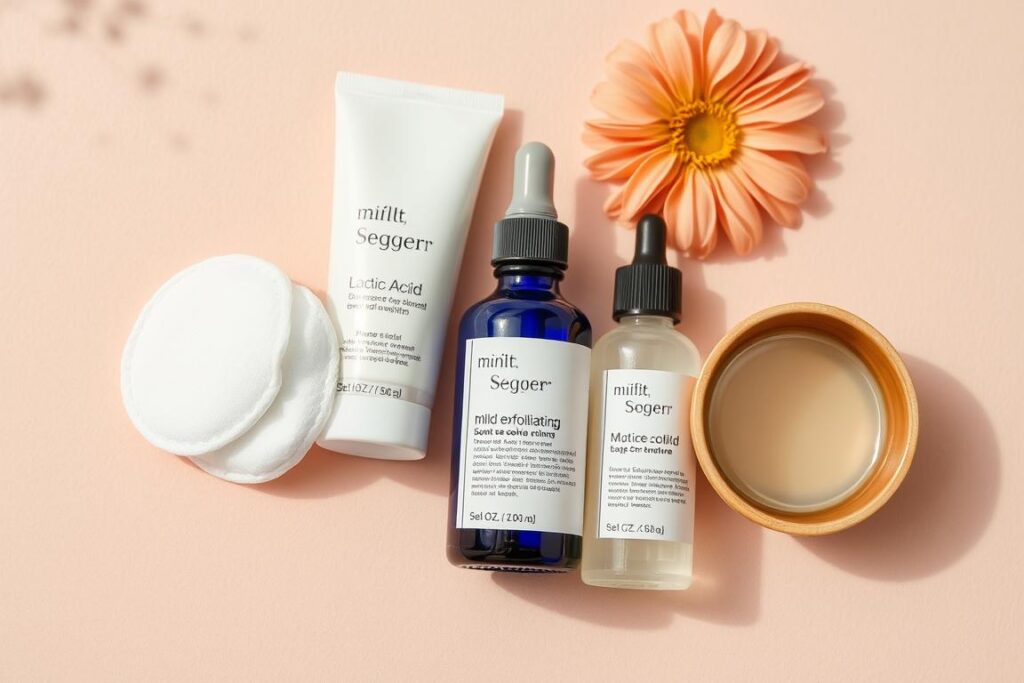
9. Patch Test New Products
Summer is not the time to experiment with aggressive new skincare. If you must introduce new products, always patch test first, especially since heat and humidity can amplify potential reactions. Apply a small amount behind your ear or on your inner forearm for 24-48 hours before using on your face.
Introduce only one new product at a time, waiting at least a week between additions to clearly identify any triggers. Keep your routine simple during particularly hot or humid periods when your skin barrier may already be compromised.
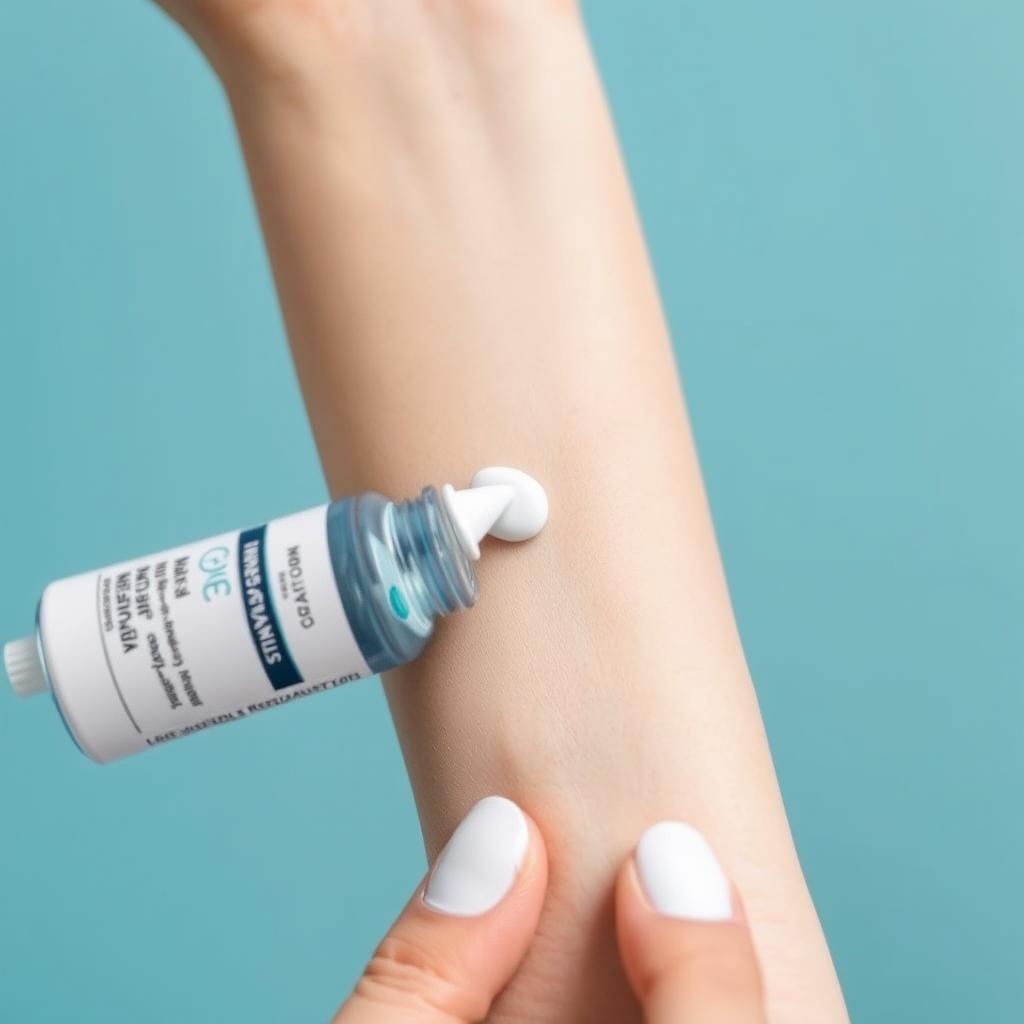
10. Use Cooling Thermal Water Sprays
Thermal water sprays can be a sensitive skin savior during hot summer days. These mineral-rich waters help soothe irritation, reduce redness, and provide instant relief from heat. Keep a bottle in your refrigerator for enhanced cooling effects.
Spritz throughout the day over makeup or clean skin when feeling flushed or irritated. Look for thermal waters from springs known for their anti-inflammatory properties, like those containing selenium or silica. These can help strengthen your skin barrier while providing immediate comfort.

Cooling Relief for Sensitive Skin
Discover thermal water sprays that provide instant relief for sensitive skin in summer heat.
Recommended Hypoallergenic Brands for Summer
Finding the right products for sensitive skin can be challenging. These dermatologist-recommended brands consistently formulate products that are gentle, effective, and suitable for reactive skin types, especially during summer months:
Avène
Known for thermal spring water-based products that soothe and calm sensitive skin. Their mineral sunscreens and after-sun care are particularly beneficial during summer.
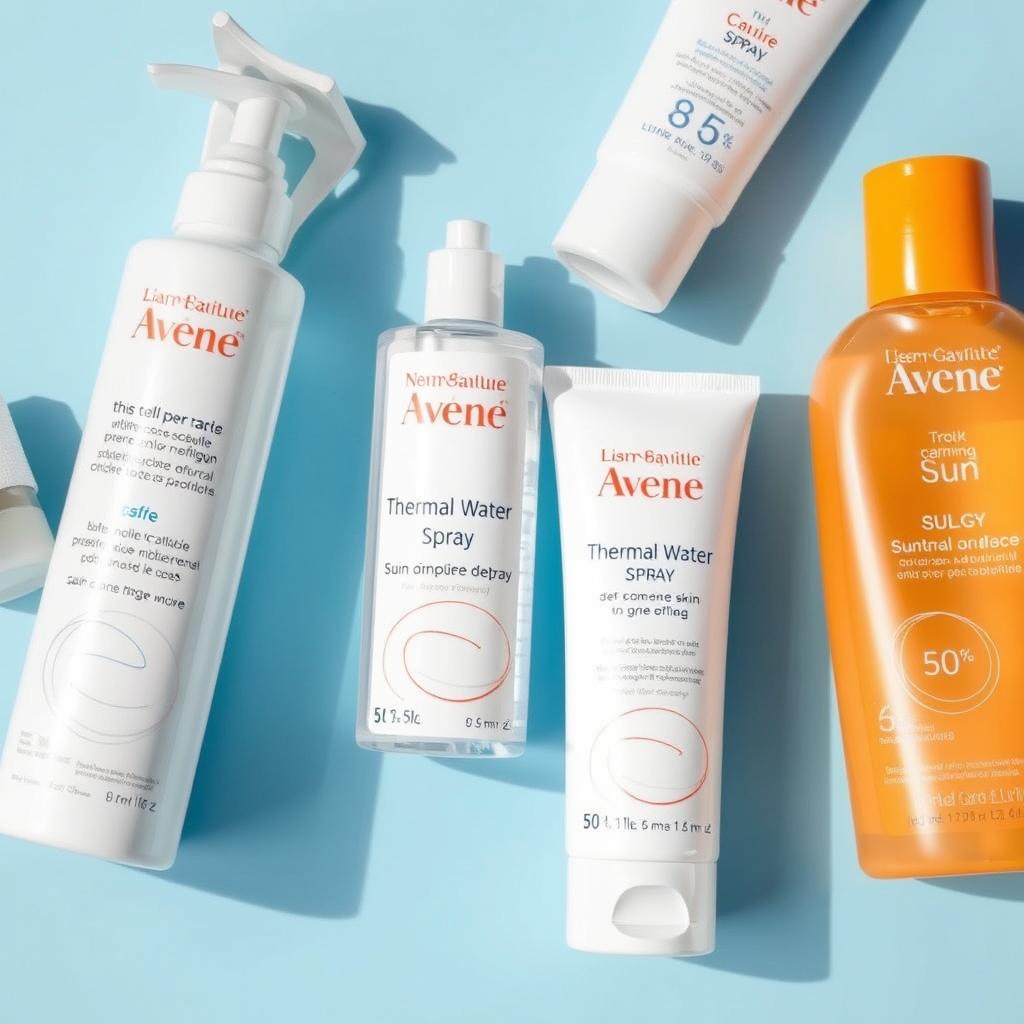
La Roche-Posay
Formulated with thermal spring water and minimal ingredients. Their Anthelios line offers excellent sun protection specifically designed for sensitive and reactive skin types.
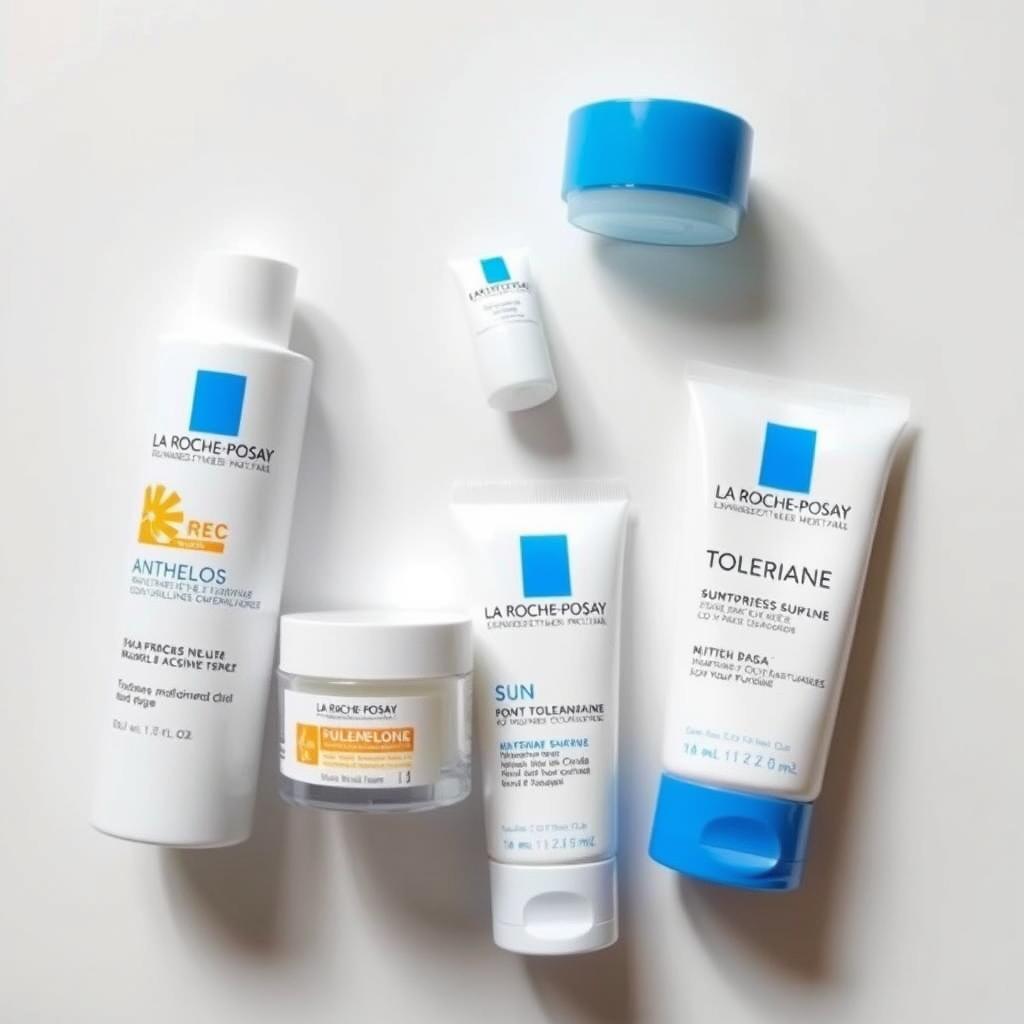
Vanicream
Specializes in products free from common irritants including fragrances, dyes, lanolin, parabens, and formaldehyde. Their lightweight moisturizer and mineral sunscreen are summer essentials.
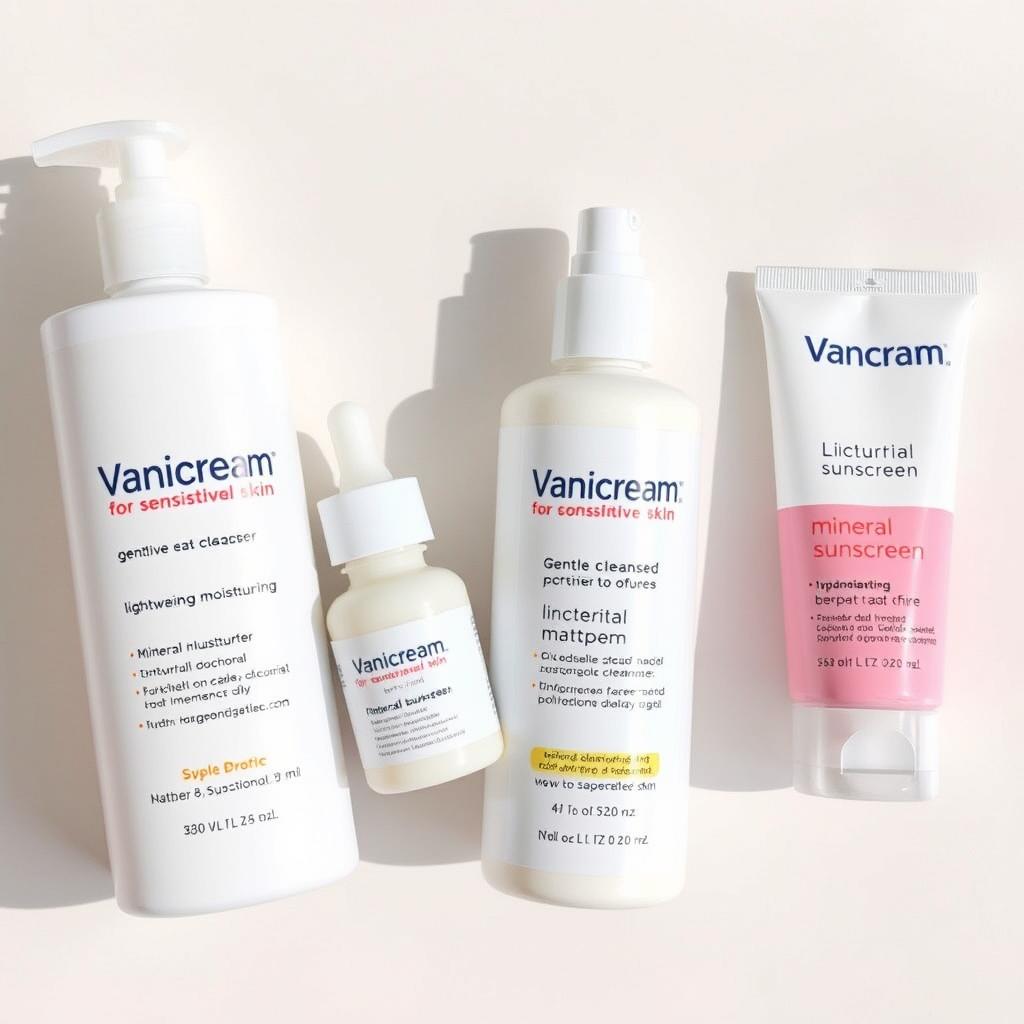
Common Summer Skin Care Mistakes to Avoid
What Not to Do
- Over-exfoliating: Aggressive exfoliation damages your already vulnerable skin barrier. Limit to once weekly with gentle products.
- Skipping sunscreen on cloudy days: Up to 80% of UV rays penetrate clouds. Apply sunscreen daily regardless of weather.
- Using heavy, occlusive creams: These can trap heat and sweat, leading to increased irritation and breakouts.
- Applying products with citrus extracts: These can cause photosensitivity and trigger reactions when exposed to sunlight.
- Using alcohol-based toners: These strip natural oils and compromise your skin barrier, increasing sensitivity.
Frequently Asked Questions
Can I use physical exfoliants on sensitive skin in summer?
How often should I reapply sunscreen with sensitive skin?
Is it normal for my sensitive skin to become more reactive in summer?
Embrace Summer with Confidence
With these summer skin care tips for sensitive skin, you can enjoy the season without compromising your skin’s health. Remember that consistency is key – following a gentle, protective routine daily will help maintain your skin barrier and prevent reactions before they start.
Listen to your skin and adjust your routine as needed. What works in June might need tweaking in August as conditions change. By prioritizing gentle cleansing, sun protection, hydration, and soothing ingredients, you can keep your sensitive skin calm, comfortable, and glowing all summer long.
Complete Your Summer Sensitive Skin Routine
Discover our curated collection of gentle, hypoallergenic products specifically formulated for sensitive skin in summer.


[…] Summer heat intensifies moisture loss, making dietary hydration crucial for skin health […]
[…] used by successful individuals to stay […]
[…] research with practical steps. You’ll learn how specific foods trigger collagen synthesis, which skincare ingredients truly penetrate the skin barrier, and why sleep quality matters as much as serums. […]